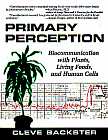|
Science Mysteries
Earth Sciences
|
Bestsellers
Earth Sciences
Products
- per page
On April 23, 1912, the Lord Chancellor appointed a wreck commissioner under the merchant shipping acts, and on April 26 the home secretary nominated five assessors. On April 30 the board of trade requested that a formal investigation of the circumstances attending the loss of the steamship Titanic should be held, and the court accordingly commenced to sit on May 2. Since that date there have been 37 public sittings, at which 97 witnesses have been examined, while a large number of documents, charts, and plans have been produced.
"It's about time, it's about space, it's a story about the human race".... this was a television entry jingle to a short lived show in the 1960's. "Lost in Space" was the title of a long running television science fiction show. While these were merely cutesy sayings for drawing in an audience, the words of both quotes are quite apropos when contemplating time and space. That's what this massive set is all about, contemplating space and time.
Discredited in his time, Nikola Tesla was made by business competitors and the government to be nothing more than a kook. However, these same conspirators later duplicated and stole many of Tesla's most fabulous inventions which could soon change the course of history.
The Magic of Our Universe is an interactive reference manual of the fascinating anomalies pervading our universal living space. Categories include: Extraterrestrial life
Great for anyone studying the elements and anomolies of electricity and magnetism. A good handbook for survival, or the person experimenting to create a free energy device.
It would be difficult to find any intelligent person in this age of the world who has not some theory or opinion in regard to the origin of man, and perhaps almost as difficult to find any such person who can give a good and sufficient reason for the faith that is in him.
Study into the agriculture products the brought on the industrial revolution and modern civilization. For any one considering serious alternative farming for a green economy, from the 1800s.
Astrology the ''pseudo-science" of the modern age, was mainstrean in the ancient world. The revelance and application of mathematics and astronomical sciences the ancients applied in astrology still dazzles the scientific world.
When the present work was first undertaken there were but few works in English dealing with its subject-matter, and hardly any which dealt with the question of Manuring at any length. During the last few years, however, owing to the greatly increased interest taken in agricultural education, the demand for agricultural scientific literature has called into existence quite a number of new works. Despite this fact, the author ventures to believe that the gap which the present treatise was originally designed to fill is still unfilled.
Two Books incorporated in one volume. You've heard or read about the Mayan Calendar and prophecies, but how do these people come to the conclusions they write about? And how can we verify their results? This reprint is one manual that can give you an understanding of how the experts read and interpret ancient Mayan calendars and time.
In his second voyage, Columbus heard vague rumors of a mainland westward from Jamaica and Cuba, at a distance of ten days' journey in a canoe. Its inhabitants were said to be clothed, and the specimens of wax which were found among the Cubans must have been brought from there, as they themselves did not know how to prepare it.
A DELIGHTFUL air of romance and mystery surrounds the whole subject of Labyrinths and Mazes.
The mechanical properties of wood are its fitness and ability to resist applied or external forces. By external force is meant any force outside of a given piece of material which tends to deform it in any manner. It is largely such properties that determine the use of wood for structural and building purposes and innumerable other uses of which furniture, vehicles, implements, and tool handles are a few common examples.
Although deeply influenced by Plato, Aristotle is far from uncritical. He abandons his mentors' concept that absolute truth is 'out there' in the shape of 'The Forms of Reality' in favour of a much more down-to-earth approach to understanding based on observation more than on reasoning. This empirical rather than idealist approach runs through all his huge output of works on logic, politics, biology, physics, medicine, and, here in one of his most famous works
A second look at the St. Paul's rocks as being evidence of a lost Atlantis.
- per page



























